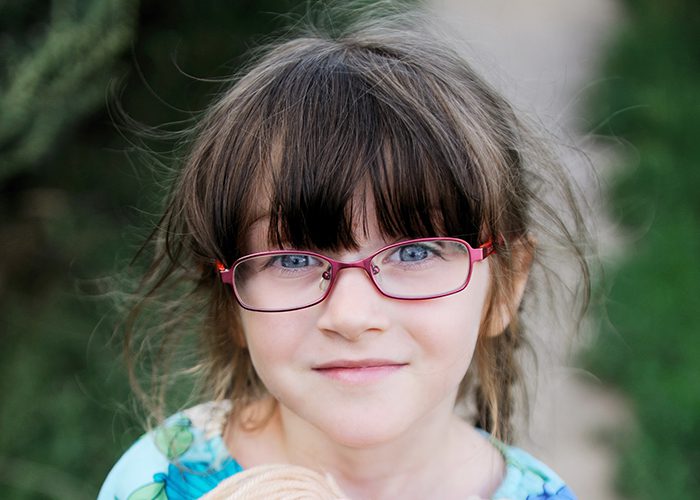Children’s Eye Health and Safety Month Helps Make Vision Care for Kids a Priority
August for many children in the United States is the beginning of a brand new school year. According to the recent report from the National Center for Children’s Vision and Eye Health at Prevent Blindness, vision plays an important role in a child’s physical, cognitive and social development. And, visual functioning is a strong predictor of academic performance in school-age children.
According to the results from the 2016 National Survey of Children’s Health, less than 70 percent of children in the United States are receiving appropriate vision screenings or eye examinations. Children are more likely to receive a vision screening/eye examination as the household income increases.
Minority children are also at increased risk of missing critical steps to ensure healthy vision. The survey found that White, non-Hispanic children are more likely to receive a vision screening or eye examination followed by Hispanics, and Black children. Children who are Native Hawaiian and Pacific Islanders have a much lower rate of preventive vision care.
Health literacy of parents and caregivers is also a factor in children’s overall health care. According to the Pediatrics article, “Child Health Disparities and Health Literacy,” low health literacy is a growing problem for Americans, with studies reporting 90 million adults with a limited understanding of basic health information and services. Half of all parents have difficulty reading and understanding patient education materials, and many struggle to comprehend medical advice that is critical to the care of their child- including their child’s vision health.
Prevent Blindness and the National Optometric Association have combined their efforts to declare August as Children’s Eye Health and Safety Awareness Month to educate the public on the importance of healthy vision for all kids. Prevent Blindness provides free information on a variety of topics including amblyopia (lazy eye), strabismus (crossed eyes), recommended sports eye protection, and more on its website. A listing of financial assistance programs is also provided to assist parents and caregivers with access to eye examinations and glasses for their children.
“Every child deserves quality eye care,” Dr. Sherrol A. Reynolds, president of the National Optometric Association, associate professor at Nova Southeastern University College of Optometry, and volunteer member of the Prevent Blindness Scientific Advisory Committee. “Their future, and ours, depends on their ability to access the resources and services that put them on the path to a lifetime of healthy vision.”
Prevent Blindness recommends a continuum of eye care for children that can include both vision screening and comprehensive eye exams. All children, even those with no signs of trouble, should have their eyes checked at regular intervals. Any child who experiences vision problems or shows symptoms of eye trouble should receive a comprehensive eye exam by an eye care provider (an optometrist or an ophthalmologist.)
Some children are more likely to have eye problems. A child’s doctor should be aware of the following factors that may make a child more likely to develop a vision problem:
-
- The child was born prematurely
-
- The child has a family history of eye problems (Issues can range from childhood cataract to lazy eye [amblyopia] to misaligned eyes or eye tumors.)
-
- The child has had an eye injury (Problems resulting from childhood eye injuries may develop much later in life.)
-
- The child has diabetes (Both children and adults with diabetes should have a dilated eye exam at least once a year.)
Children in these high-risk categories should be examined by an eye care provider (an optometrist or an ophthalmologist.)
In support of Children’s Eye Health and Safety Awareness Month, OCuSOFT ® Inc., a privately-held eye and skin care company dedicated to innovation in eyelid hygiene and ocular health, will make a donation to Prevent Blindness.
For more information on children’s eye health and safety, the NCCVEH, or financial assistance programs, please call Prevent Blindness at (800) 331-2020.
Download our children’s eye health press release.

